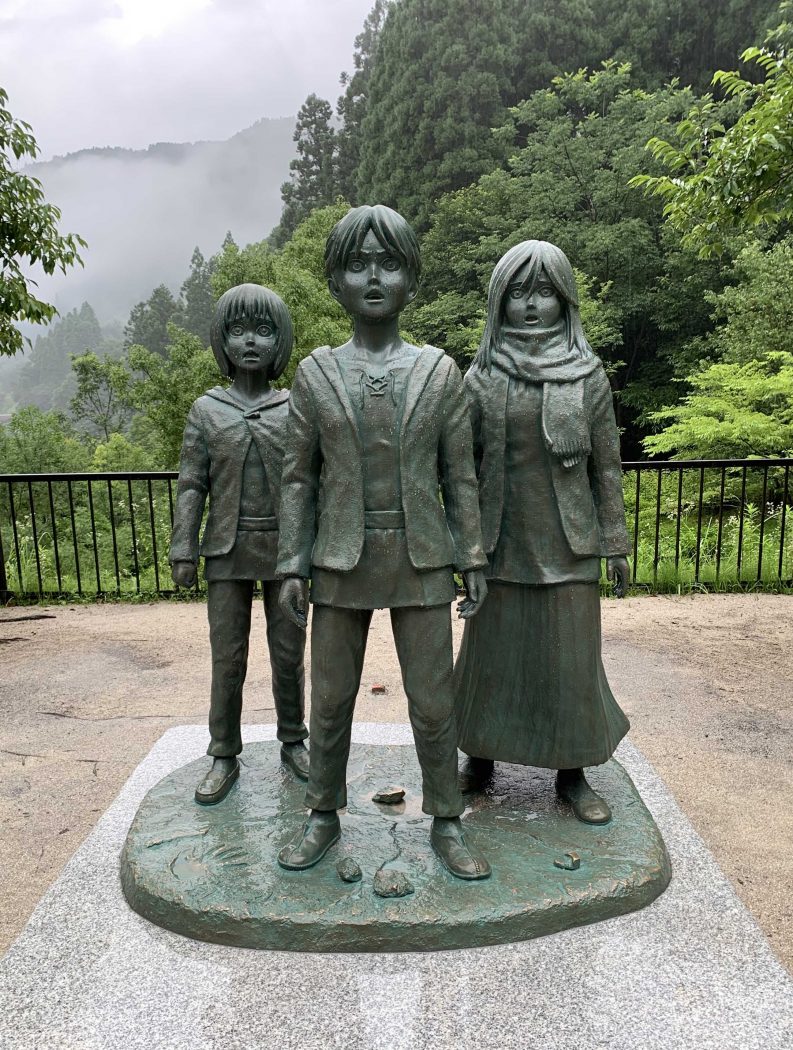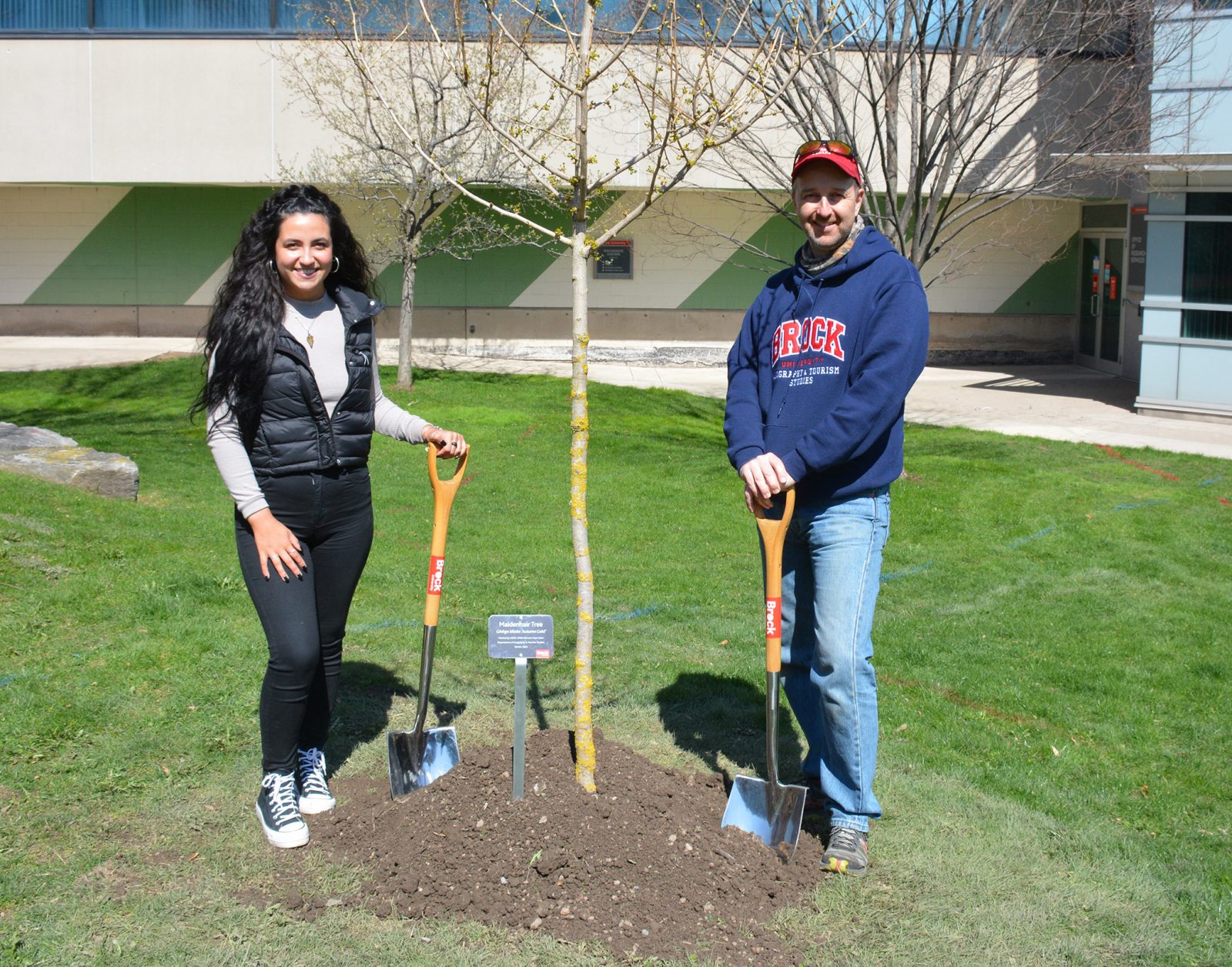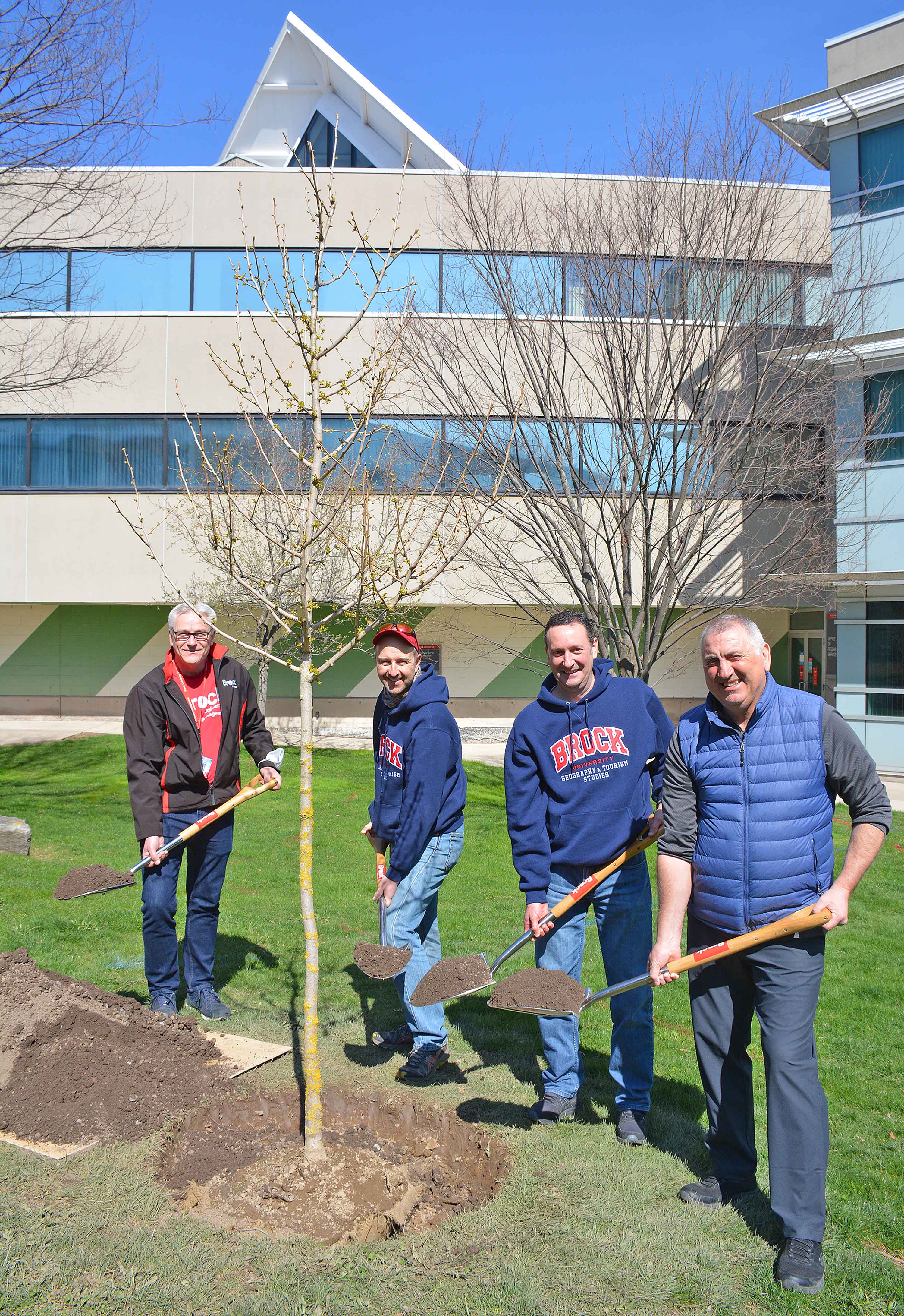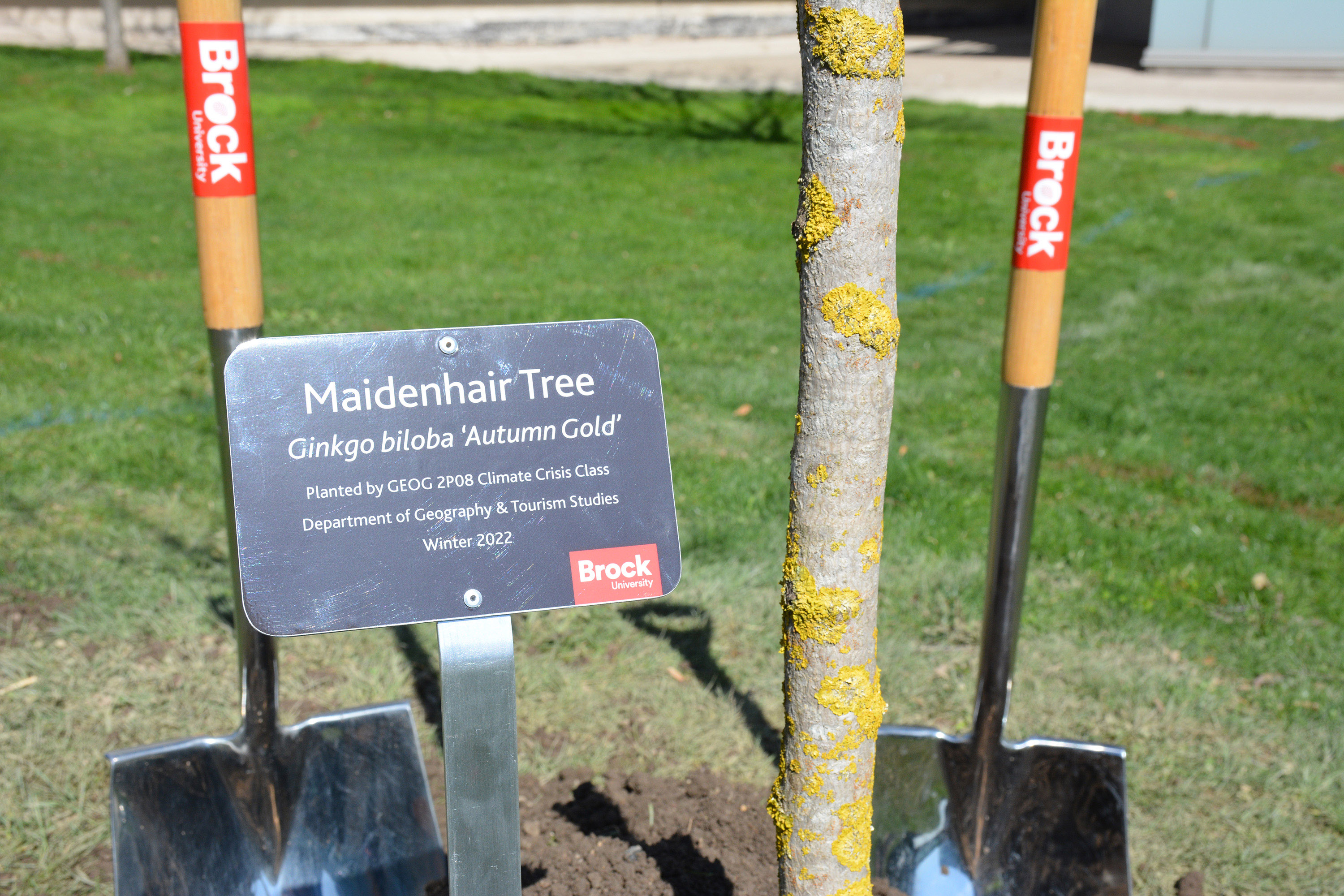By Amanda Bishop | Reposted from the Brock News

Learn about how anime fans who flock to locations in Japan to celebrate their favourite films and characters are shaping a new form of tourism in TOUR 2P98 this summer.
A new Brock course taking place this summer will dive into the phenomenon of tourism driven by anime fandom.
“Anime Tourism,” offered asynchronously online by the Department of Geography and Tourism Studies as TOUR 2P98 in the Summer 2024 session, is open to students with five or more credits. No knowledge of Japanese language is required. Registration for the Spring and Summer Terms is now open.
The course will examine anime culture, the development of anime tourism destinations and the impact of anime tourism. It will also explore the geography, history, culture and mythology of Japan.

Professor of Geography and Tourism Studies Atsuko Hashimoto photographed this statue of characters from Attack on Titan in Hita, Japan.
“I am interested in how anime tourism is contributing to the development or rejuvenation of communities,” says Professor of Geography and Tourism Studies Atsuko Hashimoto, who also plans to offer the course in the Fall/Winter session. “There are certain anime films which have specific towns or specific locations — the shrine, the forest or the part of the townscape — that are so precisely drawn that many people can actually identify the location and want to visit it.”
Her research explores the trend of anime fans seeking out the physical locations of animated settings and travelling there to mimic favourite characters and take photos for social media, which she compares to similar pastimes like geocaching.
Hashimoto says that when fans decide to travel to locations from their favourite anime, there can be both positive and negative social and economic effects, and the course will explore all of these dimensions.
As an example, she points out that while much of the current anime tourism phenomenon is driven by Japanese fans, international visitors descending on a location that is unprepared to receive them with accommodation or translators can create problems.
However, the economic benefits of anime tourism are motivating many local governments to devote resources — from new special divisions of government to YouTube channels showcasing towns — to attracting filmmakers and creating even more interest in their locations.
“We can already see how the Japanese Government, local tourism marketing offices, businesses and even local people are taking advantage of this anime tourism phenomenon, even trying to be featured in anime films,” she says.
Hashimoto says she is looking forward to discussing favourite anime examples with students and exploring how fans can help build a sustainable and responsible tourist industry around anime.
Together with Professor of Geography and Tourism Studies David Telfer, Hashimoto recently presented a paper on anime tourism entitled “Fictive Places in the Real World: Anime Film Tourism and Regional Development in Japan” at the International Conference on Literary and Film Tourism in Barcelona, Spain. She will soon speak at an event hosted by the Department of East Asian Studies at the University of Toronto on the cultural significance of anime as a lead-in to a screening of the 2022 film Suzume (Suzume no Tojimari).
Story reposted from the Brock News

















